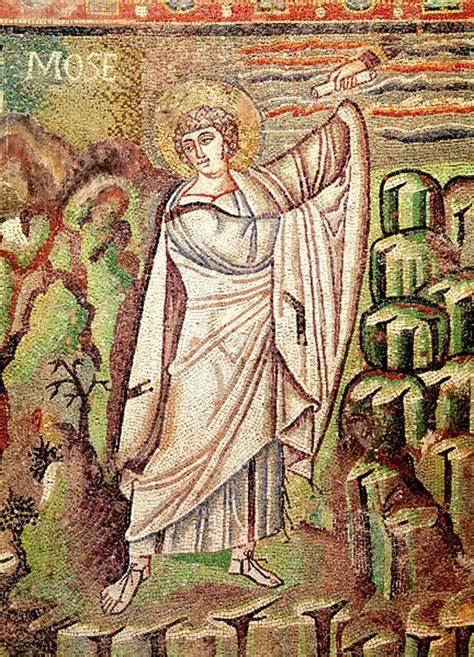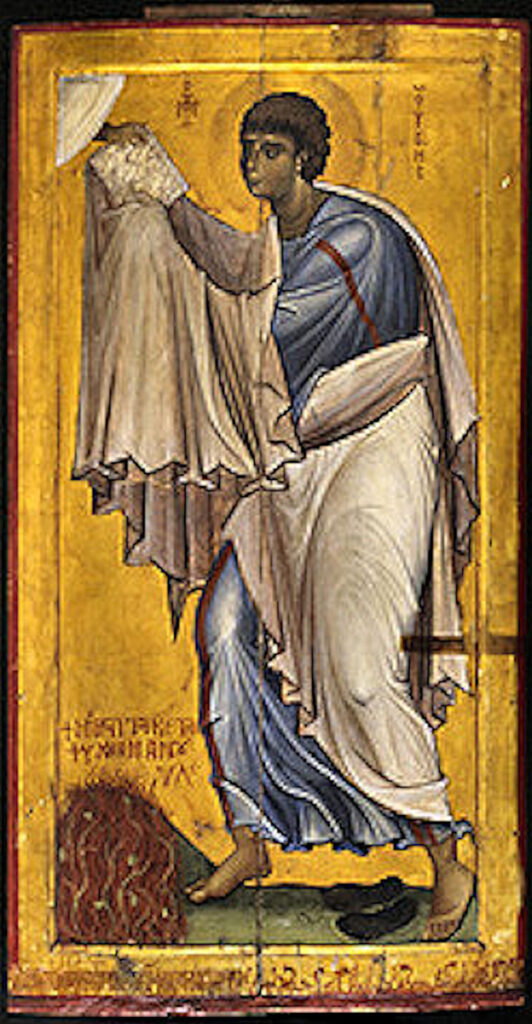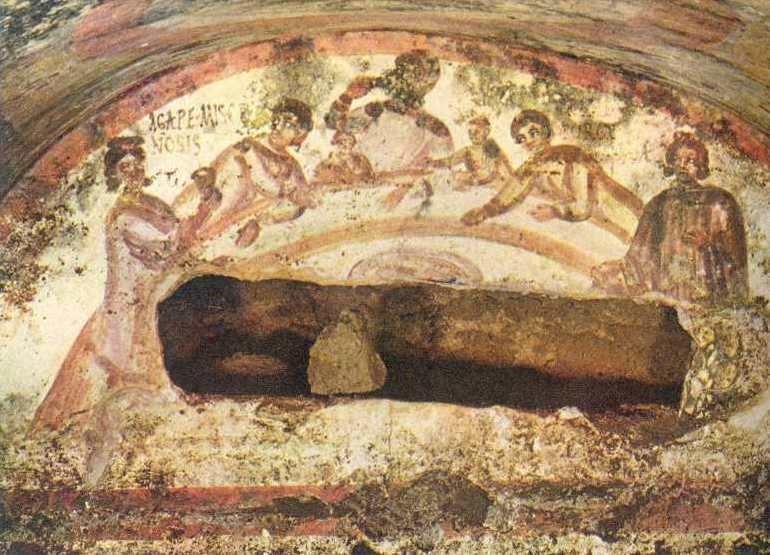
Moses receiving the Law on Mt. Sinai from the Logos 
See, I am sending my angel ahead of you to guard you along the way and to bring you to the place I have prepared. (Exodus 23:20)
The Lord promises Moses that not just any angel but MY angel will lead the Chosen People to the Promised Land. This particular angel–named Metatron in Jewish folklore but sometimes also identified with Michael–would be the guardian angel of the people, just as each nation/language group–there were thought to be 70 or 72 such “nations”–had a guardian angel.
Christians understand this reference to MY angel, however, to be either the Holy Spirit or the Logos himself. (As Christians understand the Logos to be the divine Person speaking with Moses, it seems more consistent that the reference to “my angel” would be the Spirit rather than the Logos referring to himself in this way.) Almost all the appearances of “God” or “the Lord” in the Old Testament are understood to be the Logos, anticipating his coming among us; throughout the Gospel According to St. John, the point is made that no mortal has ever met or seen or experienced the Father–only the Son, who reveals the character of the Father by the Son’s self-revelation.
Prophets, such as Malachi, also refer to “God’s angel” in a way that Christians understand to be referring to the Logos. The angel who appeared in the fiery furnace in the book of Daniel is understood to be the Logos, the divine messenger sent to protect the three young men. As “angel” means “messenger,” it is one way that early Christians understood Christ: he is the divine messenger of the Father.
As theology became more sophisticated, Christians understood this understanding of Christ as an “angel” was inadequate. But many were reluctant to abandon theological language that had been in use since the earliest days. It was this adherence to a previous “orthodoxy” that came to be known as heresy–heresy meaning “choice” and it was a choice to reject the theological advances of the Church as she came to understand Christ more clearly.
Faithful adherence to Tradition or stubborn heretical obstinacy … a fine line divides these two attitudes. Only by faithful discernment, “listening,” can we distinguish between them as the Church adjusts her language so that the Gospel can be clearly understood in new times and places. The message must remain the same even as vocabulary changes.



